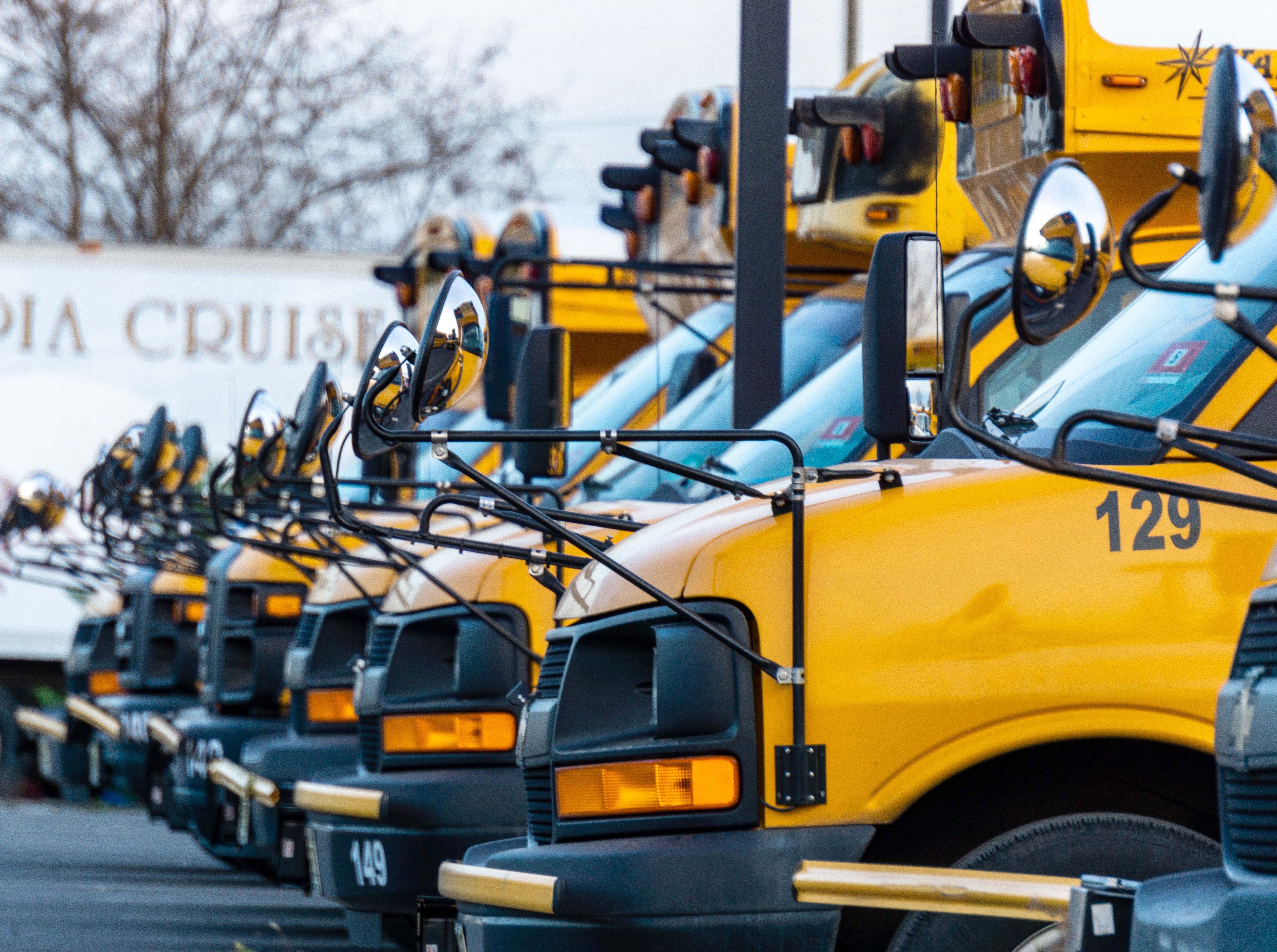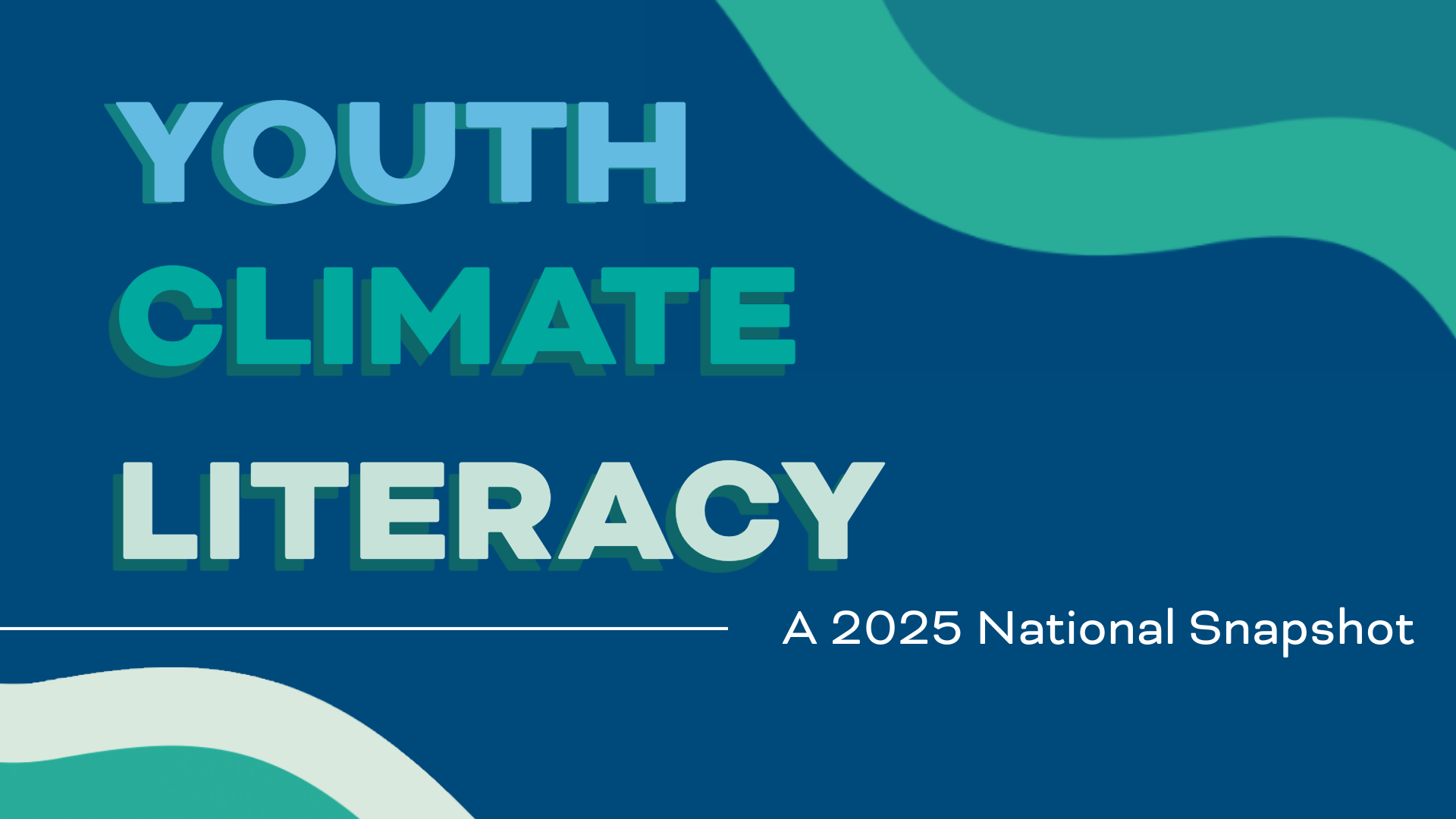Resources — Other Resources
We Can Make Schools a Force for Climate Action

We Can Make Schools a Force for Climate Action
SEPTEMBER 23, 2020 • LAURA SCHIFTER & GREG GERSHUNY
Climate change is not just an environmental crisis but a human crisis. It is an umbrella issue that will impact every facet of society and exacerbate existing problems like inequality and poverty. For us to succeed in tackling this challenge, we all need to determine our responsibility to act—every individual, every community, every organization, and every nation. But this work cannot be done in isolation. It demands that we break down our silos and collaborate on solutions that are meaningful and impactful.
To date, the education sector has largely stayed out of the climate conversation, and large-scale climate solutions have not considered the role that the sector can play. Yet, education can be a key tool in the fight against climate change. Researchers have identified education as a critical social tipping point to help us achieve rapid decarbonization by 2050. And our public schools present both a need and an opportunity to address this once in a lifetime crisis.
The Need
Mitigate. Across the country, there are 98,000 public schools, each with a unique carbon footprint. Our schools are among the largest consumers of energy in the public sector, and energy costs are the second-largest budget cost for schools behind only salaries. With 480,000 school buses, our schools operate the largest mass transit fleet in the country, and our schools serve over 7 billion meals annually.
Adapt. As the COVID-19 pandemic has further exposed, school closures cause significant disruptions for our children, our families, our communities, and our economy. The impacts of climate change have already forced school closures. After Hurricanes Irma and Maria, Puerto Rican students missed an average of 78 school days. Schools surrounding Butte County, CA, were closed for up to 17 instructional days after the Camp Fire. Importantly, children and youth experience significant trauma and disruption in the wake of these increasingly destructive weather events. Schools must adjust to support displaced families and the social and emotional needs of students.

The Opportunity
Educate. Schools and educators also provide a critical opportunity. With over 50 million children and youth enrolled in our public school system, our educators can support teaching and learning to help prepare the next generation to advance a more sustainable world. Some schools and educators are currently doing this. At Discovery Elementary in Arlington, Virginia, the net-zero energy school building provides a learning opportunity for students to track the school’s energy production and learn about clean energy. Meanwhile, the school district is saving an amount equal to the cost of two starting teacher salaries.
Advance equity. For too long Black, Latinx, Asian and Pacific American, Indigenous, and other communities of color and low-income communities have suffered due to inequities in our education systems and our environmental policies. These inequities limit opportunities and exacerbate economic and health disparities. As we consider ways to support our schools in addressing climate change, we can center equity by elevating diverse perspectives and addressing the needs of historically underrepresented students and families and under-resourced urban and rural communities. We must work to advance equity and ensure all communities can access the health, economic, and community benefits of a transition to a clean energy economy.
K12 Climate Action
Today, we are launching K12 Climate Action to bring together youth, parents, educators, school leaders, experts, and policymakers to develop an action plan to support schools in moving toward climate action, solutions, and environmental justice. With leadership from Governor Christine Todd Whitman (former administrator for the Environmental Protection Agency under the Bush Administration) and US Education Secretary John B. King, Jr. (under the Obama Administration), the K12 Climate Action Commission is breaking down silos and working collaboratively toward solutions.
The commission is going on a virtual listening tour to learn about the needs and opportunities to support our education system in this work. We are building a coalition of organizations and individuals who believe our education system is an essential tool in the fight against climate change and want to support our schools.
To develop the action plan, we want to hear from youth, parents, educators, and supporters across the country. Come to k12climateaction.org to join this coalition and share your ideas about what schools can do.
By supporting our education system, we can build long-lasting change to advance a more sustainable, resilient, and equitable world.
Originally appeared on the Aspen Institute Energy and Environment Program Blog.

